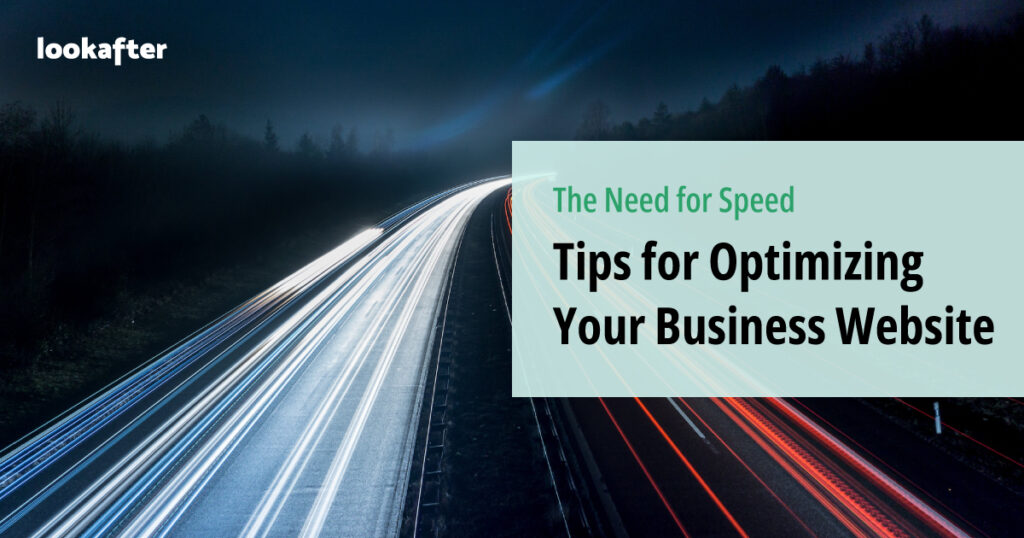Home > Empowering Tips > The Need for Speed: Tips for Optimizing Your Business Website

Your business website is your virtual storefront, and just like in the physical world, first impressions matter. If your website is slow to load and navigate, you risk losing visitors, potential sales, and even credibility. Studies have shown that users expect a website to load in two seconds or less, and for every second of delay, your conversion rates can drop significantly. So, it’s crucial to prioritize website speed.
This article outlines the essential tips for speeding up your business website, ensuring it delivers a fast and seamless user experience.
1. Optimize Images and Graphics
Images and graphics are often the heaviest elements on a web page. Here’s how to make them leaner:
- Before uploading, ensure images are sized appropriately for their display dimensions. Use image compression tools to reduce file sizes without sacrificing quality.
- Consider using modern formats like WebP for images. They offer better compression and maintain quality.
2. Minimize HTTP Requests
Every resource on your webpage, be it a stylesheet, JavaScript file, or image, requires a separate HTTP request. To reduce these requests:
- Combine and minify CSS and JavaScript files.
- Limit the number of external scripts and stylesheets.
3. Implement Browser Caching
Browser caching instructs a visitor’s browser to store static files, so they don’t need to be reloaded with each visit.
- Set up caching headers to ensure that static resources are cached by the user’s browser. This reduces the need to download them on subsequent visits.
- Implement versioning or cache busting to force the browser to download updated files when changes are made.
4. Reduce the Number of Plugins and Widgets
Plugins and widgets can add functionality to your website, but they can also slow it down.
- If you have plugins or widgets that you don’t use regularly, consider disabling or uninstalling them.
- Look for lightweight alternatives or consider custom solutions for essential functions.
5. Optimize Your Database
A bloated database can slow down your website. Regular maintenance can keep it running smoothly:
- Remove unnecessary data, such as post revisions, spam comments, and unused plugins.
- Ensure your database tables are properly indexed for efficient queries.
6. Adopt Responsive Design
While responsive design primarily focuses on ensuring that a website looks and functions well across various screen sizes and devices, it indirectly contributes to better website performance and speed.
- Implement CSS media queries to adapt layouts for various devices.
- Design with mobile devices in mind first, then scale up for larger screens.
7. Consider Options Like Dedicated or VPS Hosting
Your hosting choice has a significant impact on website speed:
- Consider dedicated hosting for maximum control over server resources.
- VPS hosting offers a balance between shared hosting and dedicated servers, providing more resources and flexibility.
Optimizing your website’s speed is an ongoing process. A faster website not only enhances the user experience but also improves search engine rankings, which can ultimately boost your online success. Follow these steps, and you’ll be well on your way to a high-speed, high-performance website.
Ready to elevate your website’s performance? Upgrade to dedicated hosting or VPS hosting for enhanced speed, security, and control. Contact us now and take your online presence to the next level!